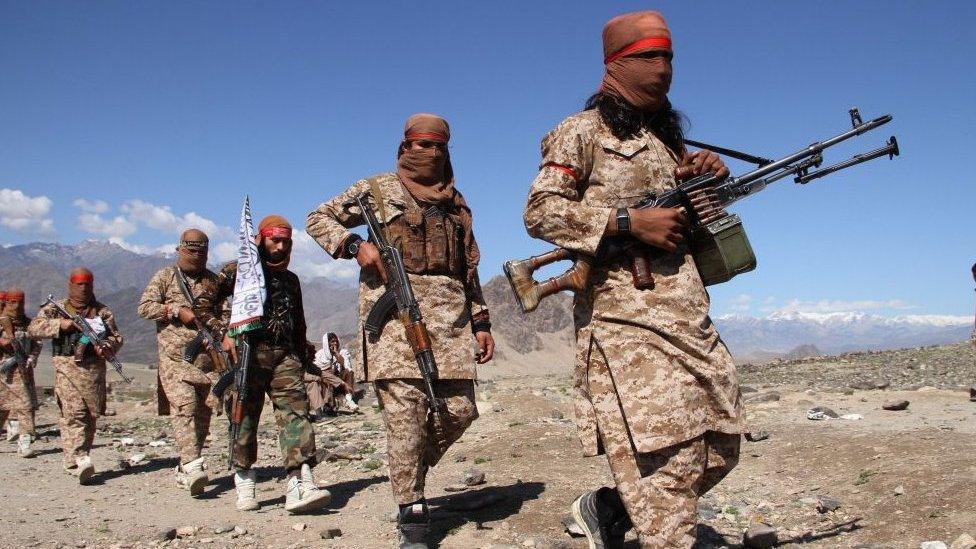Afghanistan, the Taliban and terrorism: BBC's Frank Gardner answers your questions
- Published
- comments
Frank Gardner answers questions on Afghanistan
Since a group called the Taliban seized control of Afghanistan, lots of people are concerned about what this could mean - both for people living in the country and those elsewhere in the world.
When they ruled Afghanistan in the past - from 1996 to 2001 - the Taliban were criticised for the harsh way they treated people, particularly women and girls.
The Taliban's strict laws and extreme punishments made them unpopular with other countries, and they have been accused of various human rights and cultural abuses.
Some countries, like America and the UK, believed that the Taliban allowed terrorists to work in the country.
Newsround spoke to BBC security expert Frank Gardner to find out more about what the new Taliban rule means for the world.
What will happen now the Taliban are in charge?
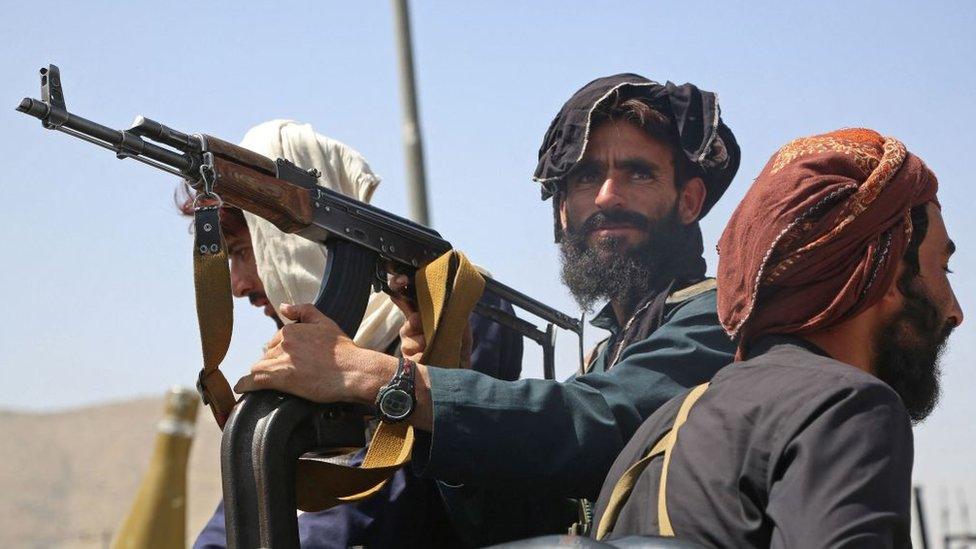
One of the big concerns that people have is how the new Taliban regime will treat people in Afghanistan, especially women and girls. Frank has reported from Afghanistan many times and remembers how bad the country was in the past.
He told us: "The Taliban have said don't worry, we're not going to be a bad government, we're going to be good, we're going to let women work.
"But, as you've probably seen on TV, thousands of Afghans don't believe them, they are really terrified, and you've seen them rushing to the airport trying to get on planes, trying desperately to leave, so it's a really tense time.
"I think we're going to have to wait to see if the Taliban stick to their word. If that's true, then great, but if they rule like they did before, 20 years ago, it was terrible.
"The Taliban are not stupid, they've just won a major victory against the most powerful military force in the world.
"They're not going to throw that away by doing stupid things. I think they are aware that they've got a struggle on their hands to convince the world that they can rule Afghanistan fairly.
"If they stop women from going to school, if they lock them up and make them stay at home... then they know that the country is going to go backwards and they're not going to have many friends internationally. So hopefully they won't make that mistake again.
"I don't think it's going to be a lot of fun now, but at least it may possibly be a safe place."
What are the rules the Taliban want to enforce?
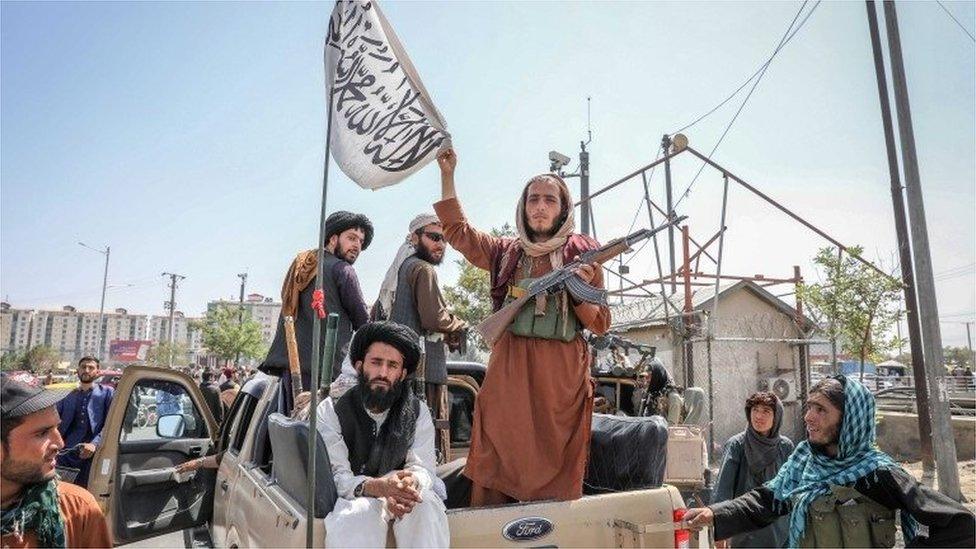
Taliban on the streets of Kabul
The Taliban want to enforce their own strict version of Sharia, or Islamic law. Frank explained more about what this means:
"They want to rule Afghanistan according to a very strict version of Islam. Lots of you probably know that Islam is a religion. It's open to different interpretations.
"The Taliban are very strict. The last time they ruled the country, they didn't let women work, they couldn't go out in public without a male, they had to be completely veiled in a burqa.
"This time they are saying they're going to be different.
"As long as nobody insults Islam, as long as nobody insults their version of Sharia, which means Islamic law, then they will be able to live in peace and be a part of society.
"I think the world is going to be watching closely."
What do other Muslims think about the Taliban?

Frank believes that the majority of Muslims around the world don't share the Taliban's extreme views
The Taliban say they are followers of Islam, but their beliefs are far more extreme than those of the majority of Muslims.
Frank explains: "The Taliban have a very extreme interpretation of Islam and Sharia.
"We still don't know how extreme this new version is compared to the Taliban of 20 years ago.
"Then, they blew up these massive statues because they considered them against Islam.
"That's not something that most Muslims would agree with. This was part of Afghanistan's cultural heritage, it would be like blowing up a museum, where some famous books and things are, just because you don't like what's written in them.
"I want to actually pay a big tribute to all of the millions of Muslims in Afghanistan and Britain, who have done so much to turn to turn their backs on extremism, to condemn extremism and to report suspicious activity when they see it, these are really good citizens.
"Muslims don't want war, they want to just live normal lives, like everybody else around the world."
Why are people worried about terrorism and Afghanistan?

The Taliban are back on the streets
World leaders like UK Prime Minister Boris Johnson and US President Joe Biden have called for countries to work together to stop Afghanistan becoming a base for terrorism.
This is because in the past, the Taliban have been accused of allowing terrorist groups to work in Afghanistan. These groups have been held responsible for terrorist acts around the world, like the 9/11 attacks.
"The last time the Taliban were the rulers in Afghanistan 20 years ago, they allowed a group called al-Qaeda to have bases, they were terrorist training camps.
"America, and most of the world said, this has got to stop we can't have this country harbouring these bad people there.
"So the big fear now that the Taliban are back, is are they going to allow these bad people to come back in?
"The Taliban have said no, they will not allow any of these foreign fighters to operate on our soil, in our land.
"If that's true great but... that's the challenge, I think, to try to stop that happening."
How can countries stop terrorism from Afghanistan?

Security agencies around the world work hard to stop terrorists
Since the last time the Taliban were in power, Frank believes that the world's security agencies have got better:
"Secret agents or secret intelligence services, like MI6 or MI5, part of their job is to get spies inside the bad people's camp, so that they can find out what they're doing and quickly warn people.
"And they're quite good at that... But they risk their lives to try and get the information and they've stopped a lot of attacks this way, they're much better at doing it."
What can we do to help people in Afghanistan?
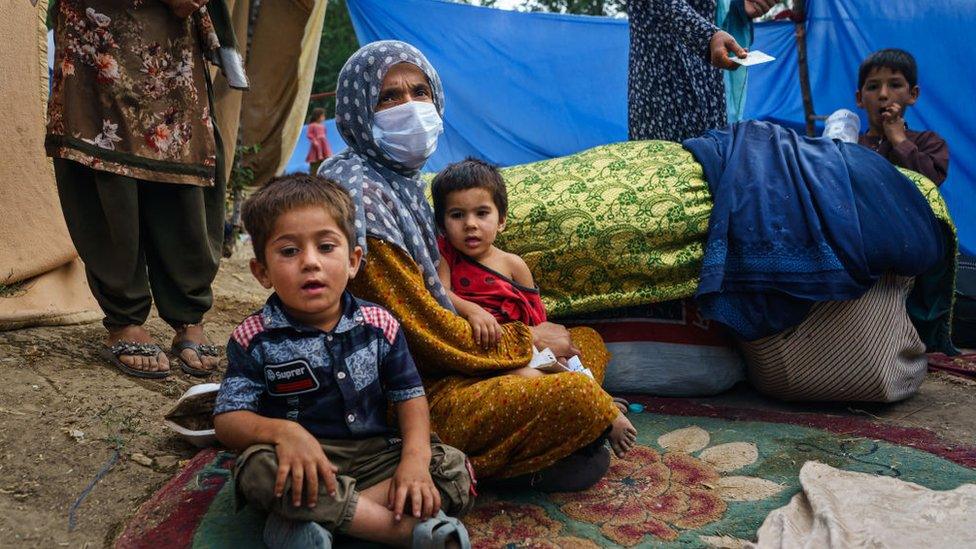
Many people - including children - have been badly affected by years of fighting in Afghanistan
The fighting that has ravaged Afghanistan has left lots of people in need of help, and you may be wondering how you can help too. Frank says donating to charities may be one of the best ways:
"There are a lot of very poor people in Afghanistan in more than 20 years of war.
"And there are a lot of people still suffering, so it's a really difficult place with a lot of challenges. So yes, if you're contributing money to charities, keep doing it because they need it."
- Published18 August 2021
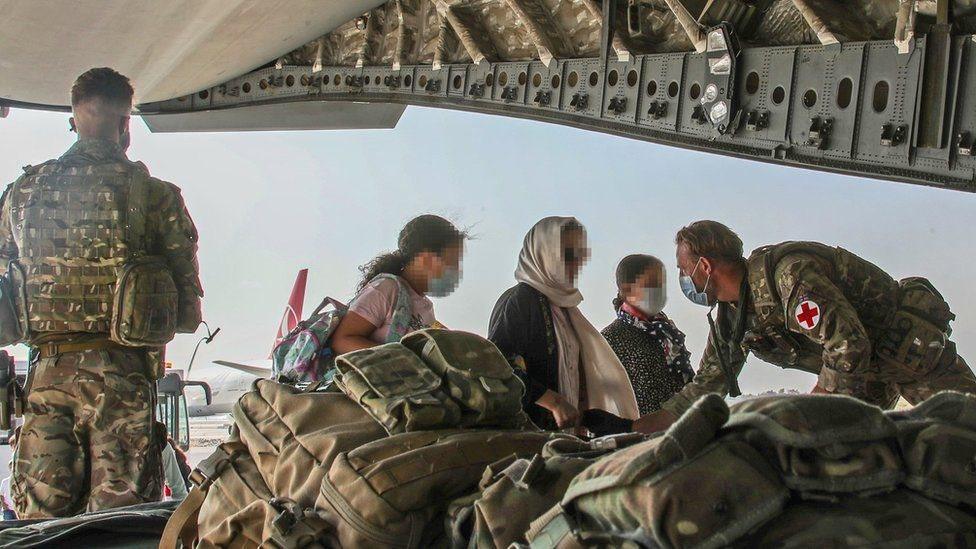
- Published18 August 2021
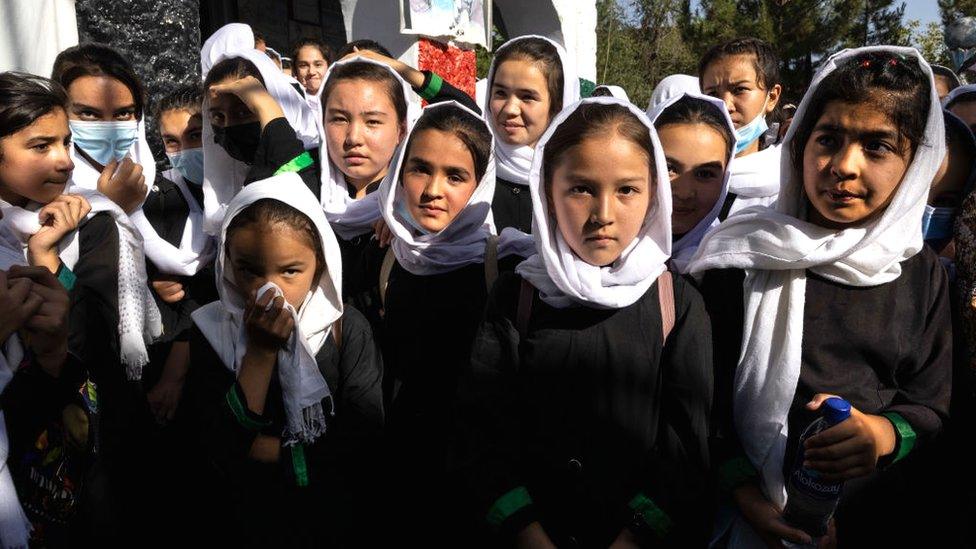
- Published17 August 2021
